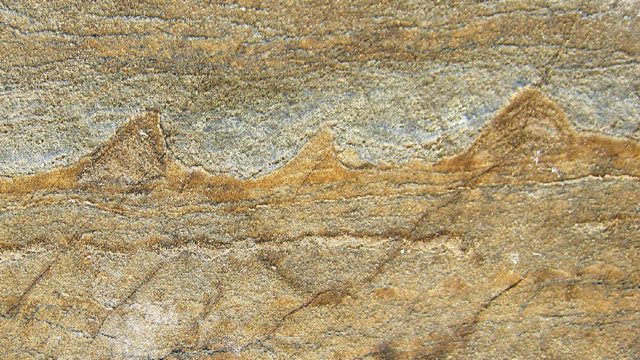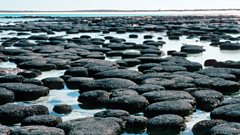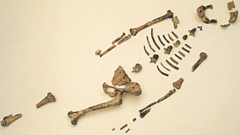The Oldest Life on Earth
Earliest Life; Lucy fell From Tree; Farty Cows; Gravitational Waves - the next step
Snow on Isua Supercrustal Belt in Greenland has melted to reveal something quite unexpected. Scientists think the uncovered rock could contain signs of very early life, dating back to as far as 3.7 billion years ago. The evidence is thought to represent stromatolite fossils, the longest-lived lifeforms made up of sediment and bacterial growths. The work suggests that life might have formed 200 million years earlier than we previously thought.
Lucy Fell from Tree
Lucy was a hominin - Australopithecus afarensis - an early human species, who died over 3 million years ago. With 40% of her fossilised bones recovered, scientists have been examining them to learn more about her life and death. A recent, highly detailed, CT scan has revealed some surprising results, Lucy could have died from falling out of a tree.
Methane from Cows
Cows produce large quantities of the greenhouse gas methane. As part of the EU-funded RuminOmics project led by the University of Aberdeen, scientists have been measuring the methane production and energy efficiency of a group of cows. Could breeding cows that produce less methane be a more environmentally friendly way to farm in the future?
Alien Signals
There have been a lot of headlines and tweets recently about alien radio signals from a distant star. The signal was so powerful that if it were from aliens, the aliens would have spectacularly harnessed the entire power of the sun. However, it seems more likely that this signal is from here on Earth than from a star 94 million light years away, so let’s not get too excited yet.
Gravitational Waves
About to be switched back on, LIGO, the Laser Interferometer Gravitational Wave Observatory, led to the momentous detection of gravitational waves. These are mysterious ripples in space generated from the collision of two black holes. The European equivalent - VIRGO is also being upgraded. And there’s still talk of LISA – a gravitational wave detector in space. So what does the future hold in gravitational wave research?
Presenter: Marnie Chesterton
Producer: Fiona Roberts
(Photo: Stromatolites found in ancient rocks from Greenland. Credit: UOW)
Last on
More episodes
Clips
-
![]()
New signs of earliest life
Duration: 00:52
-
![]()
Did Lucy die falling from a tree?
Duration: 00:57
Broadcasts
- Thu 1 Sep 2016 21:32GMT91�ȱ� World Service except East and Southern Africa & News Internet
- Fri 2 Sep 2016 01:32GMT91�ȱ� World Service Americas and the Caribbean
- Fri 2 Sep 2016 02:32GMT91�ȱ� World Service Online, Europe and the Middle East & UK DAB/Freeview only
- Fri 2 Sep 2016 03:32GMT91�ȱ� World Service East Asia & South Asia only
- Fri 2 Sep 2016 04:32GMT91�ȱ� World Service Australasia
- Fri 2 Sep 2016 06:32GMT91�ȱ� World Service Europe and the Middle East & East and Southern Africa only
- Fri 2 Sep 2016 14:32GMT91�ȱ� World Service except News Internet
Podcast
-
![]()
Science In Action
The 91�ȱ� brings you all the week's science news.




